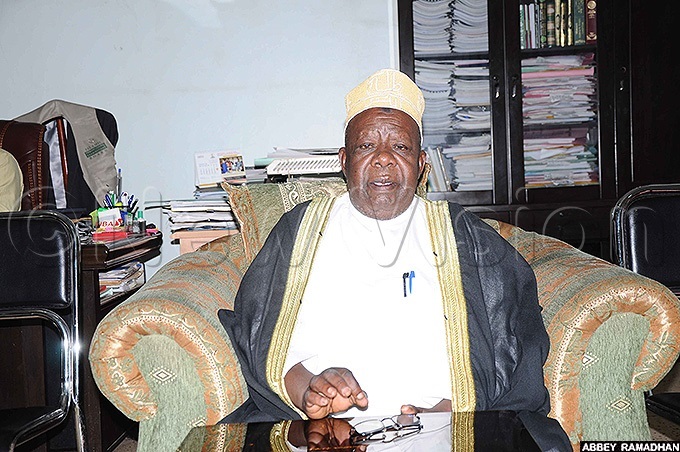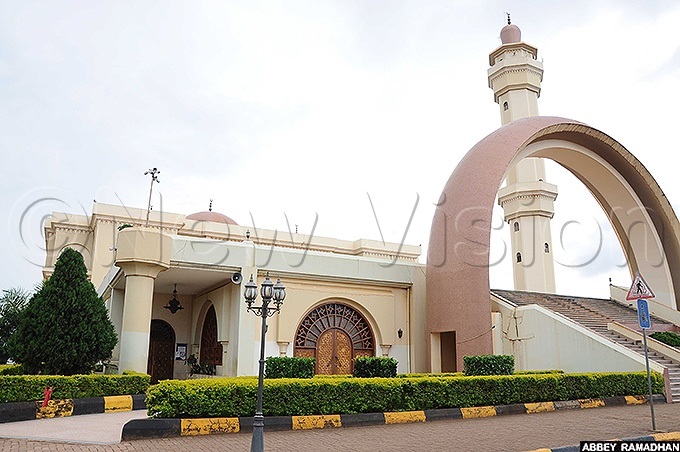Ramadhan 2020: Muslims urged to look out for the moon today
Apr 22, 2020
Addressing the media at Uganda Muslim Supreme Council on Tuesday, Kakungulu said today (Wednesday) will be the 29th day of the Islamic month of Shaban 1441AH.

RAMADHAN Eid
KAMPALA - The director of Sharia at the Uganda Muslim Supreme Council (UMSC), Sheikh Yahaya Kakungulu, has appealed to Muslims in Uganda to look out for the moon in the evening of today (Wednesday) which will mark the beginning of the Holy month of Ramadhan.
Addressing the media at Uganda Muslim Supreme Council on Tuesday, Kakungulu said today (Wednesday) will be the 29th day of the Islamic month of Shaban 1441AH.
According to Kakungulu if the moon is sighted today evening, Ramadhan which is the Muslim Holy fasting will commence on Thursday.

"Failure to sight the moon on Wednesday (today) means fasting the Holy month of Ramadhan will automatically commence on Friday," he said.
Ramadhan is the ninth month of the Islamic calendar and the most religious time of the year for Muslims.
In some Arab countries, whenever the month approaches, scientists arm themselves with telescopes and search the sky for the crescent moon.
The exact date of Ramadhan changes every year because Islam uses a calendar based on the cycles of the moon. This lunar calendar is 10 days shorter than the Gregorian calendar.
Kakungulu said whoever sights the moon or is in possession of reliable information should pass it over to UMSC headquarters at Old Kampala on the following telephone numbers: 0772/702-525171 (for Sheikh Kakungulu), 0772409504 (for public relations officer Haji Mutumba) and 0782306313/0702491162 (for the Registrar of Sharia Sheikh Twaib Ali Mpanso.
Kakungulu urged Muslims to welcome Ramadhan with happiness despite coronavirus pandemic which has hit and threatened the entire world.
About Ramadhan
Fasting is the fourth of the five pillars of Islam and is intended to help teach Muslims self-discipline, self-restraint, and generosity.

It also reminds them of the suffering of the poor, who may rarely get to eat well.
However, children, pregnant women, elderly people and those who are ill or travelling don't have to fast, according to Qur'an (the Muslim holy book).
The Quran was first revealed to Prophet Muhammad during this month and the actual night that the Quran was revealed is a night known as Lailut ul-Qadr ('The Night of Power').
While fasting, Muslims refrain from consuming food, drinking liquids, smoking, and engaging in sexual relations.
Muslims are also advised to give up bad habits during Ramadhan, such as lying, cursing, engaging in disagreements and backbiting.
Spiritual rewards (thawab) for fasting are also believed to be multiplied within this holy month of Ramadan.
Fasting typically includes the increased offering of salat (prayers) and recitation of the Quran.
It is common during Ramadhan to have one meal (known as the suhoor), just before sunrise and another (known as the iftar), directly after sunset.
The end of Ramadhan is marked by a big celebration called Eid ul-Fitr (the festival of the breaking of the fast).
On Eid ul-Fitr Muslims do not only celebrate the end of fasting but thank Allah (God) for the strength He gave them throughout the previous month.
